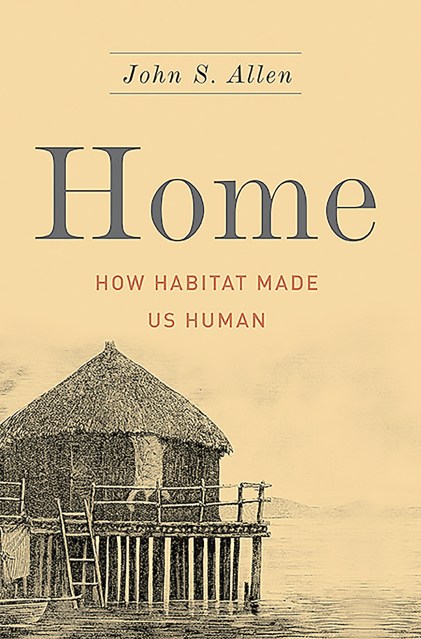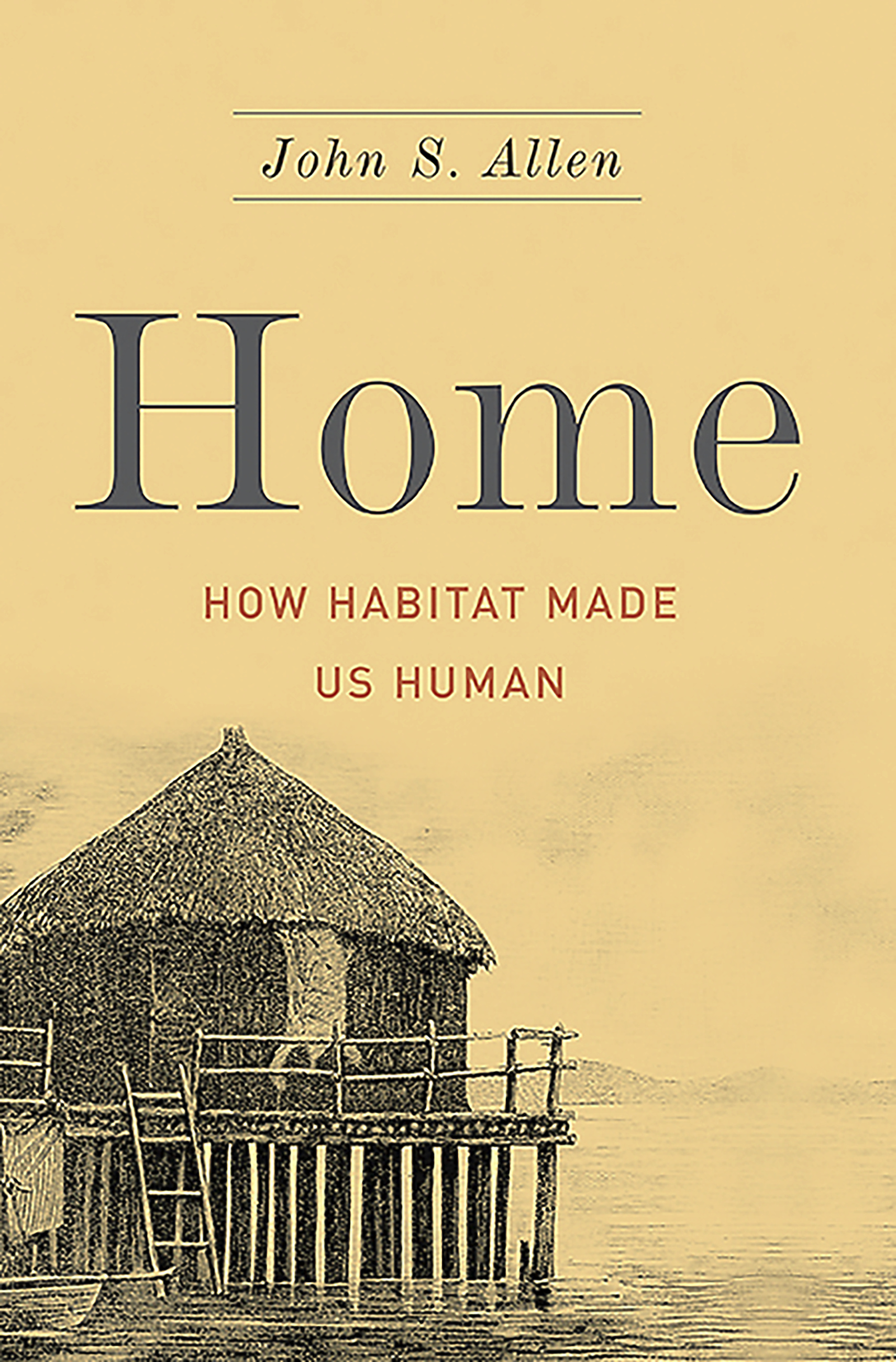Promotion
Use code CYBER2024 for 30% off sitewide + free shipping over $30
By clicking “Accept,” you agree to the use of cookies and similar technologies on your device as set forth in our Cookie Policy and our Privacy Policy. Please note that certain cookies are essential for this website to function properly and do not require user consent to be deployed.
Home
How Habitat Made Us Human
Contributors
Formats and Prices
Price
$28.99Price
$36.50 CADFormat
Format:
- Hardcover $28.99 $36.50 CAD
- ebook $19.99 $25.99 CAD
This item is a preorder. Your payment method will be charged immediately, and the product is expected to ship on or around December 29, 2015. This date is subject to change due to shipping delays beyond our control.
Also available from:
Home is where the heart is. Security, comfort, even love, are all feelings that are centered on the humble abode. But what if there is more to the feeling of being at home? Neuroanthropologist John S. Allen believes that the human habitat is one of the most important products of human cognitive, technological, and cultural evolution over the past two million years. In Home, Allen argues that to “feel at home” is more than just an expression, but reflects a deep-seated cognitive basis for the human desire to have, use, and enjoy a place of one’s own.
Allen addresses the very basic question: How did a place to sleep become a home? Within human evolution, he ranks house and home as a signature development of our species, as it emerged alongside cooperative hunting, language, and other critical aspects of humanity. Many animals burrow, making permanent home bases, but primates, generally speaking, do not: most wander, making nests at night wherever they might find themselves. This is often in home territory, but it isn’t quite home. Our hominid ancestors were wanderers, too — so how did we, over the past several million years, find our way home? To tell that story Allen will take us through evolutionary anthropology, neuroscience, the study of emotion, and modern sociology. He examines the home from the inside (of our heads) out: homes are built with our brains as much as with our hands and tools. Allen argues that the thing that may have been most critical in our evolution is not the physical aspect of a home, but developing a feeling of defining, creating, and being in a home, whatever its physical form. The result was an environment, relatively secure against whatever horrors lurked outside, that enabled the expensive but creative human mind to reach its full flowering. Today, with the threat of homelessness, child foster-care, and foreclosure, this idea of having a home is more powerful than ever.
In a clear and accessible writing style, Allen sheds light on the deep, cognitive sources of the pleasures of having a home, the evolution of those behaviors, and why the deep reasons why they matter. Home is the story about how humans evolved to create a space not only for shelter, but also for nurturing creativity, innovation, and culture — and why “feeling at home” is a fundamental aspect of the human condition.
Genre:
-
"[A] well-presented natural history.... The author guides readers through unfamiliar territory by looking at feelings of home as a cornerstone of human cognition, as basic perhaps as language."Kirkus Reviews
-
"I have enjoyed reading Home: It has helped me put together just what disparate factors our real estate really represents, what is its real meaning and value."Robert Shiller, Nobel Laureate in Economics
-
"Readers interested in anthropology and the cultural exploration of why humans have created the idea of home and what this idea means will enjoy John S. Allen's exploration in this newly published volume.... [His] writing style is clear and straightforward."New York Journal of Books
-
"[Allen] investigates the neuroscience and psychology of 'feeling at home' and how that feeling has granted an adaptive advantage to the human species, enabling the advances in culture and technology that separate us from our primate cousins. At a time when many people around the world lack a place to call their own, Allen shows why we all deserve one."Scientific American
-
"[An] engaging and informative natural history."Barbara J. King, Washington Post
-
"More than anything, research by Allen and his colleagues shows that notions of sanctuary, certainty and the consequent capacity to relax are key to our concept of home, how we identify it and why we need it. An affirming read for the commute home."New Scientist
-
"Thought-provoking.... Most intriguingly, Mr. Allen suggests that a feeling of being tied to a specific place may be linked in our early hominid ancestors."Wall Street Journal
- On Sale
- Dec 29, 2015
- Page Count
- 304 pages
- Publisher
- Basic Books
- ISBN-13
- 9780465038992
Newsletter Signup
By clicking ‘Sign Up,’ I acknowledge that I have read and agree to Hachette Book Group’s Privacy Policy and Terms of Use







